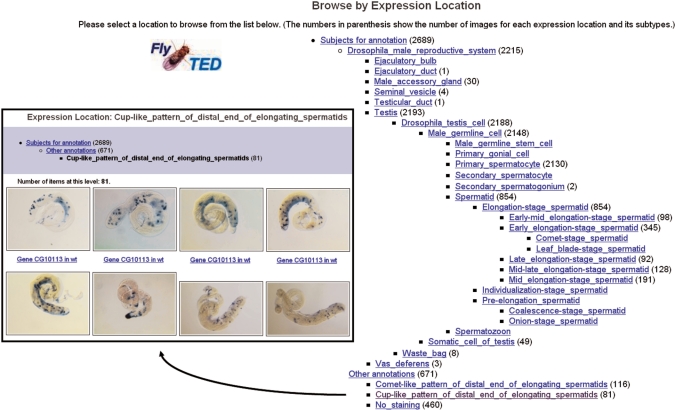
FlyTED, the Drosophila Testis Gene Expression Database, is a organic analysis database for gene expression photos from the testis of the fruit fly Drosophila melanogaster.
It presently comprises 2762 mRNA in situ hybridization photos and ancillary metadata revealing the patterns of gene expression of 817 Drosophila genes in testes of untamed sort flies and of seven meiotic arrest mutant strains through which spermatogenesis is flawed.

The Omega class of cytosolic glutathione transferases was initially acknowledged by bioinformatic evaluation of human sequence databases, and orthologous sequences had been subsequently found in mouse, rat, pig, Caenorhabditis elegans, Schistosoma mansoni, and Drosophila melanogaster.
In people and mice, two GSTO genes have been acknowledged and their genetic buildings and expression patterns recognized. In each species, GSTO1 mRNA is expressed in liver and coronary heart in addition to a spread of different tissues.
GSTO2 is expressed predominantly within the testis, though average ranges of expression are seen in different tissues. Intensive immunohistochemistry of rat and human tissue sections has demonstrated mobile and subcellular specificity within the expression of GSTO1-1. The crystal construction of recombinant human GSTO1-1 has been decided, and it adopts the canonical GST fold.
A cysteine residue rather than the catalytic tyrosine or serine residues present in different GSTs was proven to kind a blended disulfide with glutathione. Omega class GSTs have dehydroascorbate reductase and thioltransferase actions and likewise catalyze the discount of monomethylarsonate, an intermediate within the pathway of arsenic biotransformation. Different various actions of human GSTO1-1 embrace modulation of ryanodine receptors and interplay with cytokine launch inhibitory medicine.
As well as, GSTO1 has been linked to the age at onset of each Alzheimer’s and Parkinson’s ailments. A number of polymorphisms have been recognized within the coding areas of the human GSTO1 and GSTO2 genes.
Our laboratory has expressed recombinant human GSTO1-1 and GSTO2-2 proteins, in addition to various polymorphic variants. The expression and purification of those proteins and dedication of their enzymatic exercise is described.